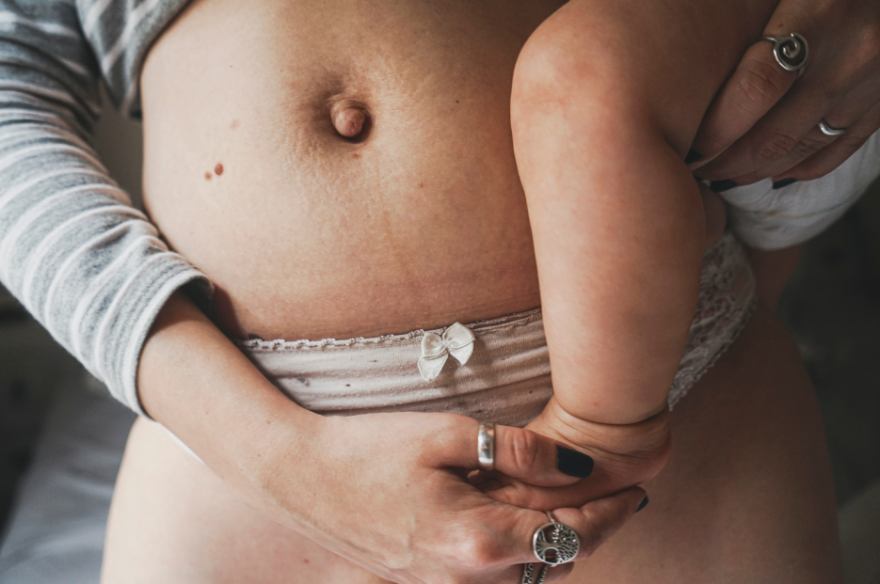Stop and think about pregnancy for a minute. It’s WILD. Organs shift, a new organ grows, a new being emerges. Labor and delivery can lead to tearing or major surgery. And after that, it’s head off home to care for a whole new person.
Support for postpartum bodies is a necessary but often overlooked aspect of the pregnancy and childbirth experience. But it doesn’t have to be. Host Anita Rao talks to birth and postpartum doula Lydia-Carlie Tilus, whose practice SageFemme Wellness connects her with postpartum parents seeking help with recovery. Tilus is also a certified neuromuscular massage therapist, which she uses to help clients reconnect with their bodies.
Rao also speaks to ash luna, a social worker and photographer who founded the 4th Trimester Bodies Project. The project features photographs and stories of postpartum bodies to normalize the countless forms these bodies take.
Also joining the conversation is Letticia Solomon, a teacher and mother of two who had both her children while serving in the Marines. She shares how the intensely physical nature of her job affected her postpartum experience.
Thank you to Kyesha Jennings, Priyanka Rao, Taylor Matthews, Amanda Magnus and Brianna Battles for sharing their stories and shaping this episode.
Four Things Pregnancy Changes About Your Body
- Blood Flow
“The amount of blood that your body produces increases, and they call that an increase in blood viscosity ... and that's to accommodate the growing baby.” - Postpartum doula and massage therapist Lydia-Carlie Tilus
- Joints and Ligaments
During pregnancy, the body releases the hormones relaxin and progesterone, which relax your muscles and loosen joints and ligaments. This can make tendonitis, sciatica, carpal tunnel and other joint and skeletal issues more common for pregnant people.
- Walking
“Your pelvis is being shifted … your gait will change to accommodate the fact that your center of gravity is shifting.” - Lydia-Carlie
- Breathing
As your organs shift to accommodate a growing baby, you may experience an out-of-breath feeling or an inability to take a deep breath.
Copyright 2022 North Carolina Public Radio. To see more, visit North Carolina Public Radio. 9(MDAzNzE4NjE2MDEyNDcxNzIzNTk2MDZlOQ004))



